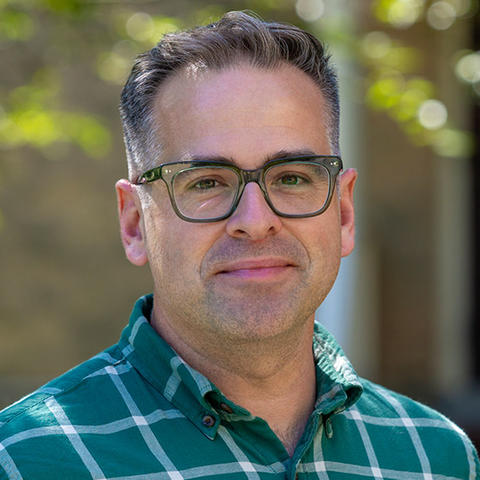Summer Centered: Olivia Davis '27 Explores the Promise of Tree Extracts to Combat Neurodegenerative Diseases

Photo by Mac Sanders '24.
Details
For Davis, a prospective biology major, the research she’s pursuing at Haverford is deeply personal.
When Olivia Davis ’27 arrived at Haverford last fall, the prospective biology major and health studies minor knew she wanted to pursue work focused on cancer or neurodegenerative diseases. The reasons, unfortunately, are deeply personal: All four of her grandparents have faced cancer, and one of her grandmothers has been living with Parkinson’s disease since 2020.
Davis found the perfect mentor in her pre-major advisor, Professor of Biology Robert Fairman, whose research is focused on the build-up of proteins on neurons in the brain that cause devastating conditions like Parkinson’s, amyotrophic lateral sclerosis, and Hungtington’s. Fairman’s lab studies the effect of tree extracts on the aggregation of proteins associated with neurodegenerative diseases, using D. melanogaster, the common fruit fly, and C. elegans, roundworms, as model organisms.
“I was talking to Rob about his research and what he does when he told me that he is focused on neurodegeneration,” Davis Recalls. “So as soon as I got on campus, I started going to his lab meetings.”
There she met Fatima Faheem ’24, whose thesis built on the lab’s work investigating the potential of extracts from long-living red and sugar maple trees to stave off the aggregation of amyloid beta, the protein associated with Alzheimer’s. Davis is continuing that work this summer in Fairman’s Sharpless Hall lab, while also developing her own project for the fall.
“Looking at tree extracts is what makes the Fairman lab really novel,” says Davis. “Trees have secondary metabolites that are able to break down different proteins, something humans just haven’t evolved to be able to do.”
While trees live quite long life spans, Davis’ main subjects, fruit flies, only live about 70 days in the lab, she says. Her day-to-day work there includes conducting fruit fly sleep studies and survival assays. She’s also troubleshooting an issue she and Faheem encountered with RU486, the steroid the lab uses to induce the gene-switched flies to begin developing amyloid beta. The troubleshooting document she’s developed, she says, will help the students who eventually follow her to continue to conduct the lab’s experiments.
For the fall, Davis will channel what she’s learned this summer into a new project focused on the potential of tree extracts in ameliorating Parkinson’s, much to her grandmother and family’s delight, she says. She’s particularly thankful for Fairman’s support, she says, as she embarks on her own project and plans to apply for the Penn Access Summer Scholars Program, a pre-med enrichment program at the University of Pennsylvania next year.
“I'm really glad I have three more years to be able to work on both of these projects because they both have so much meaning for me,” Davis says. “Rob's a great mentor, and I really enjoy working with everybody. The best part is that I’ve felt myself become a much stronger student and researcher.”




